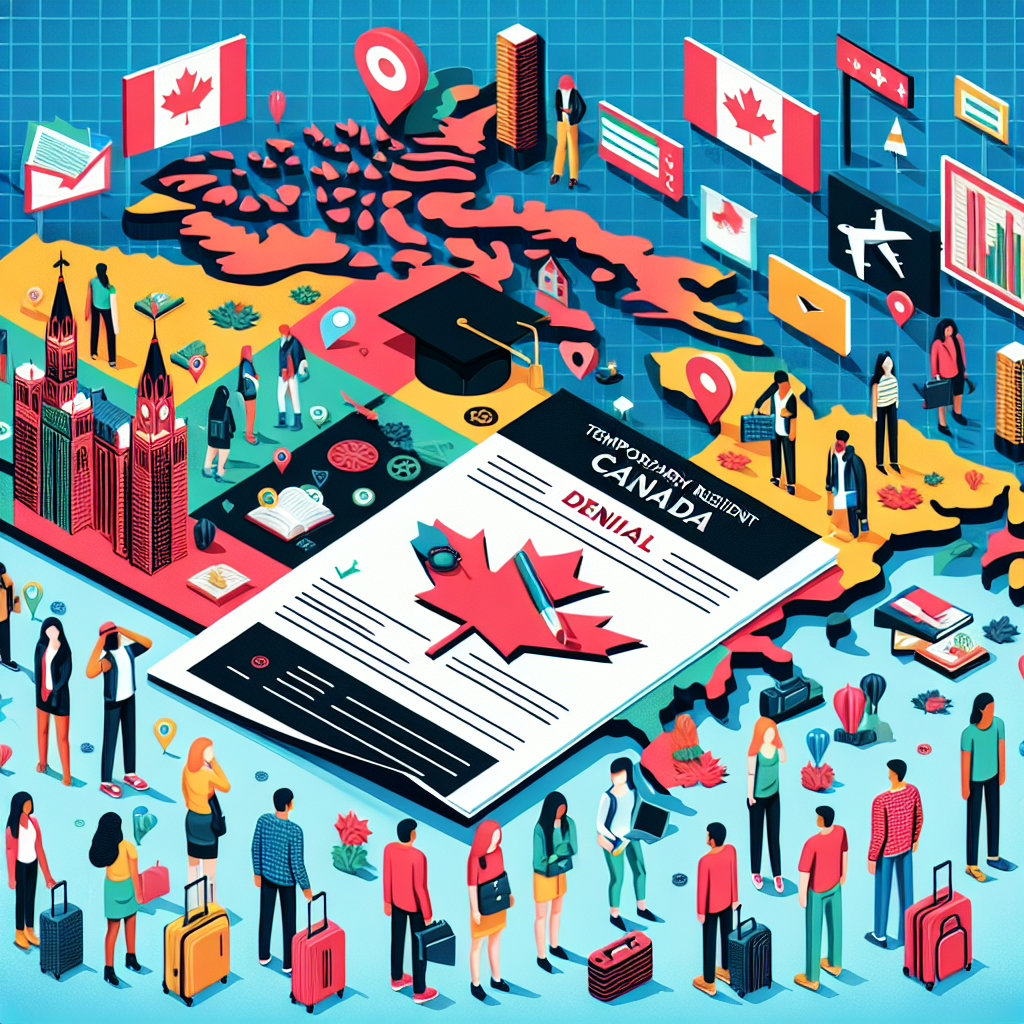Navigating the complex landscape of rejection and misrepresentation in Canada requires a nuanced understanding of the underlying causes, impacts, and available resources. Whether it’s dealing with visa applications, business proposals, or personal relationships, rejection is a reality that many face. Misrepresentation, on the other hand, often carries more severe consequences, particularly when it involves legal or immigration matters. This article explores the various facets of rejection and misrepresentation in Canada, providing insights into common causes, impacts, and coping strategies.
Table of contents
Understanding Rejection in Canadian Context
Rejection is a multifaceted experience that can occur in various aspects of life in Canada, from professional settings to personal relationships. In the Canadian context, rejection often manifests in visa applications, job opportunities, and academic pursuits. Understanding the cultural and systemic reasons behind rejection can provide a broader perspective on how to navigate these challenges. For instance, the competitive nature of the Canadian job market often results in high rejection rates for applicants, particularly for those who are new to the country.
In the realm of immigration, rejection can be particularly disheartening. Canada has a robust immigration system with specific criteria that must be met, and failure to do so can result in applications being refused. This can be due to a variety of factors, including incomplete documentation, inability to meet financial requirements, or failing to demonstrate ties to the home country. Understanding these criteria and preparing thoroughly can help mitigate the risk of rejection.
Academic rejection is another area where individuals may face challenges. Canadian universities and colleges maintain high standards and often have limited spots for certain programs, leading to a competitive selection process. Students may be refused admission due to insufficient grades, lack of prerequisite courses, or inadequate personal statements. Recognizing the importance of meeting academic criteria is crucial for prospective students.
On a personal level, rejection in social and romantic contexts is also prevalent. Cultural differences and communication styles can sometimes lead to misunderstandings and, subsequently, rejection. Building cultural awareness and communication skills can help individuals navigate these personal rejections more effectively.
Exploring Common Causes of Being Refused
There are numerous reasons why individuals might face refusal in various aspects of Canadian life. In immigration, one of the most common causes of being refused is the inability to meet the eligibility criteria laid out by Canadian immigration authorities. This can include factors such as insufficient language proficiency, lack of work experience, or failure to provide necessary documentation. Understanding these requirements is essential for applicants to improve their chances of acceptance.
In the job market, applicants might be refused due to a lack of relevant experience or skills. The Canadian job market highly values local experience, and newcomers might face challenges in obtaining positions if they cannot demonstrate familiarity with Canadian workplace culture. Additionally, applicants may be refused if they do not tailor their resumes and cover letters to match the specific requirements of the job posting.
Academic refusals often stem from inadequate preparation or understanding of the application process. Students might be refused admission if they do not meet the academic prerequisites or if their application lacks the necessary components, such as strong recommendation letters or a compelling personal statement. Being well-informed about the application requirements of Canadian educational institutions is crucial for prospective students.
In personal relationships, refusals can occur due to cultural misunderstandings or mismatched expectations. For newcomers to Canada, navigating social norms and communication styles can be challenging, leading to potential refusals in social or romantic contexts. Building cultural competency and fostering open communication can help mitigate these challenges.
The Impact of Misrepresentation in Canada
Misrepresentation is a serious issue in Canada, particularly in legal and immigration contexts. It involves providing false or misleading information to authorities, and its impact can be severe. In the immigration process, misrepresentation can lead to applications being refused, and in some cases, individuals may be banned from entering Canada for several years. This can have significant personal and professional consequences for those involved.
The impact of misrepresentation extends beyond immigration. In professional settings, being found guilty of misrepresentation can damage an individual’s reputation and career prospects. Employers value honesty and integrity, and any indication of deceit can result in job offers being rescinded or employees being terminated. The long-term impact on one’s career can be profound, affecting future job opportunities and professional relationships.
In academic environments, misrepresentation can lead to severe disciplinary actions. Students found guilty of plagiarism or providing false information in their applications may face expulsion or revocation of their degrees. This can have lasting effects on their academic and professional futures, as educational institutions in Canada place a high value on academic integrity.
Personal relationships can also be affected by misrepresentation. Trust is a foundational element in any relationship, and once it is broken, it can be difficult to rebuild. Misrepresentation in personal contexts can lead to the breakdown of relationships and social isolation. Understanding the importance of honesty and transparency is crucial in maintaining healthy personal connections.
Legal Consequences of Misrepresentation Cases
Canada takes cases of misrepresentation very seriously, and the legal consequences can be severe. In immigration matters, individuals found guilty of misrepresentation may face a five-year ban from entering Canada. This ban can have significant implications for those seeking to build a life in Canada, affecting their personal and professional plans.
In addition to immigration bans, misrepresentation cases can lead to criminal charges, particularly if the misrepresentation involves fraud or deceit. Individuals may face fines, imprisonment, or both, depending on the severity of the case. Legal proceedings can be lengthy and costly, adding further stress to those involved.
For professionals, being caught in a case of misrepresentation can lead to disciplinary actions by professional regulatory bodies. This can include suspension or revocation of professional licenses, effectively ending one’s career in that field. The long-term impact on one’s professional reputation can be devastating, affecting future job prospects and networking opportunities.
In academic settings, students found guilty of misrepresentation may face expulsion or revocation of their degrees. This not only affects their educational trajectory but also their professional future, as employers and other educational institutions may be hesitant to accept individuals with a history of academic dishonesty. Understanding the legal consequences of misrepresentation is crucial for individuals to avoid these severe repercussions.
Strategies to Overcome Rejection Challenges
Overcoming rejection requires resilience and a proactive approach. For those facing immigration rejection, it is crucial to understand the specific reasons for refusal and address them in future applications. Seeking advice from immigration consultants or lawyers can provide valuable guidance in navigating the complex immigration process and improving the chances of acceptance.
In the job market, applicants can overcome rejection by gaining relevant experience and skills. This may involve pursuing additional education or training, volunteering, or seeking internships to build local experience. Tailoring resumes and cover letters to match job requirements and networking with industry professionals can also enhance job prospects.
For students facing academic rejection, seeking feedback on application components such as personal statements or recommendation letters can provide insights for improvement. Understanding the specific admission criteria and ensuring all prerequisites are met is essential. Additionally, exploring alternative educational pathways or institutions can provide new opportunities for academic success.
In personal relationships, overcoming rejection involves building cultural awareness and communication skills. Engaging in community activities, seeking cultural exchange programs, and practicing open communication can help individuals better understand social norms and navigate personal rejections. Building a supportive network of friends and mentors can also provide encouragement and guidance in overcoming personal challenges.
Seeking Support: Resources Available in Canada
Canada offers a wide range of resources to help individuals navigate rejection and misrepresentation challenges. For immigration-related issues, government websites provide comprehensive information on application processes and requirements. Additionally, immigration consultants and lawyers can offer personalized guidance and support in addressing specific concerns.
In the job market, career counseling services, workshops, and networking events are available to help job seekers improve their skills and connect with potential employers. Many organizations offer mentorship programs, providing valuable insights and advice from experienced professionals in the field.
For students, academic support services, such as writing centers and career counseling, are available at most educational institutions. These resources can help students improve their application materials and explore alternative academic pathways. Scholarship and financial aid programs can also provide support for those facing financial barriers to education.
In personal contexts, community centers and cultural organizations offer programs and activities that promote cultural understanding and social integration. Counseling services are available for those seeking support in overcoming personal challenges and building resilience. By accessing these resources, individuals can find the support they need to navigate rejection and misrepresentation in Canada effectively.
Navigating rejection and misrepresentation in Canada can be challenging, but understanding the common causes, impacts, and available resources can help individuals overcome these obstacles. Whether dealing with immigration, professional, academic, or personal rejections, resilience and proactive strategies are key to moving forward. By seeking support from available resources and building cultural awareness, individuals can successfully navigate the complexities of rejection and misrepresentation, ultimately achieving their goals and building fulfilling lives in Canada.


0 Comments